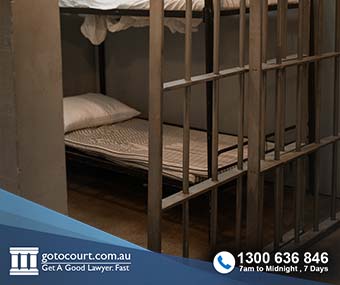Good Behaviour Bonds in South Australia
In South Australia, a person who has been found guilty of an offence can be put on a good behaviour bond without any further penalty, and with or without a conviction being recorded against them. Good behaviour bonds are generally imposed for minor offences or for a person’s first offence. This article deals with good behaviour bonds in South Australia.
What is a good behaviour bond?
Under a good behaviour bond, a person who has been found guilty of an offence promises to be of good behaviour for a set period of time (up to three years). During that time they may or may not be under the supervision of a community corrections officer. A bond usually involves a condition that a sum of money is forfeited if the bond is breached. A bond may also have a suspended term of imprisonment attached to it, which the offender may be ordered to serve if they breach the conditions of the bond.
In order to impose a bond the court must be satisfied that there are good reasons for doing so.
Legislation
The legislation that governs the making of good behaviour bonds in South Australia and the conditions which may be imposed under a bond is the Sentencing Act 2017.
In the SA Youth Court a good behaviour bond is called an ‘obligation’ and the making of the bond and conditions that are imposed are governed by the Young Offenders Act 1993.
Varying, revoking or discharging good behaviour bonds in South Australia
A court can order that any condition of a good behaviour bond be revoked or varied, or that the bond be discharged, if an application is made either by the offender or the Minister for Correctional Services.
The Minister can also release an offender from their obligation to comply with any conditions requiring supervision if satisfied that it is no longer necessary and it is not in the best interests of the offender to remain under supervision.
Conditions of good behaviour bonds in South Australia
When imposing good behaviour bonds in South Australia, a court makes conditions that the offender be of good behaviour and must appear in court for sentence should the bond be breached. The court can also impose any other condition that is appropriate.
Other conditions which may be imposed include:
- payment of a sum of money by the offender if they don’t comply with the bond
- nomination of a guarantor (or guarantors) who undertakes to ensure that the offender will comply with the bond
- payment of sum of money by the guarantor(s) if the offender doesn’t comply with the bond. This is rarely used.
- supervision by a community corrections officer for a period of time. This usually involves the offender reporting to the officer at specified times and following any reasonable direction.
- a specified number of hours of community service
- that the offender live, or not live, with a specific person or at a specific address
- that the offender take part in an intervention program, or receive medical or psychiatric treatment recommended by a legally qualified practitioner
- that the offender abstain from certain drugs or alcohol
- that the offender give back illegally obtained property or pay compensation for injury, loss or damage caused by the offence
- that the offender complete a specified education program
- any condition that the court thinks is appropriate in the circumstances.
Breach of good behaviour bonds in South Australia
A person may breach a good behaviour bond by failing to comply with one or more of the conditions of the bond. It is always a condition of a bond that the person be of good behaviour, so the bond is breached if they commit a criminal offence. A bond may also be breached by non-compliance with other conditions such as consuming alcohol when there is a condition that prohibits this or failing to complete community work that must be completed under the bond.
If a court is satisfied that a condition of a bond has been breached, there are various actions that it can take, including:
- ordering the offender and/or guarantor to pay the sum of money set out in the bond as a penalty for breaching the bond
- bringing the offender back to court, convict them of the original offence if they have not already been convicted, and sentence them for the original offence. The court can impose any penalty that could have been imposed when the matter was originally before the court.
- taking no action in respect of the breach if the court is satisfied the breach was trivial or there are proper grounds to justify excusing the breach.
Education programs
Good behaviour bonds in South Australia may include a condition that the offender attend an education program. There are two types of education programs.
The first type includes education programs approved by the Attorney-General. If the offender agrees, they can be sent to such a program at their own cost. There are limited approved programs.
The second type includes those offered by the Department for Correctional Services, available for offenders who are subject to a supervised bond and which are designed to address their specific needs.
The educational programs available include:
- alcohol and other drugs
- cognitive skills
- literacy and numeracy
- domestic violence
- victim awareness
- anger management
- treatment for sex offenders.
If you require legal advice or representation in any legal matter, please contact Go To Court Lawyers.








